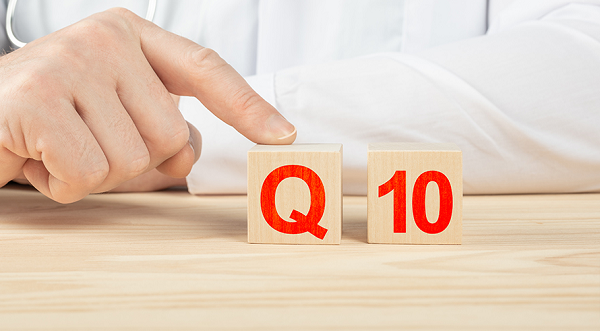Have you ever felt sluggish or low on energy? Perhaps you’ve even tried various supplements or drinks to give yourself a boost. But have you considered the role of CoQ10 in your body’s energy production? This lesser-known compound plays a vital role in keeping us energized and healthy, and today we’re going to explore why it’s so important to prioritize CoQ10 as part of our daily wellness routine. So sit back, grab a cup of tea, and let’s dive into the fascinating world of CoQ10!

What is CoQ10?
CoQ10, or coenzyme Q10, is a fat-soluble vitamin found in every cell of the body. It’s needed for energy production and can be converted into energy by the body. CoQ10 is especially important for the heart and lungs, as it helps them to work more efficiently.
How is CoQ10 Used in the Body?
CoQ10 is a key component in the body’s energy production. It helps to create energy by converting food into usable energy. CoQ10 is important for heart health, as it helps to protect against heart disease and stroke. It can also help to promote healthy blood pressure levels, and it can help to reduce the risk of diabetes. CoQ10 is also important for maintaining cognitive function and preventing age-related diseases such as Alzheimer’s disease.
Sources of CoQ10
CoQ10 is a molecule made up of carbon, oxygen, and hydrogen. It is found in all cells of the body, where it helps to produce energy by breaking down fats and proteins. CoQ10 deficiency can cause problems with heart function, memory, vision, and other parts of the body.
There are many different sources of CoQ10. The most common is from animal products, such as meat, fish, poultry, and eggs. Vegetables also contain small amounts of CoQ10. However, the richest source of CoQ10 is leafy green vegetables, including spinach and kale.
Although supplemental CoQ10 is available over-the-counter, it’s best to get it from a prescription from your doctor because not all supplements are created equal. Some supplements that contain large doses of CoQ10 may actually increase your risk for heart disease.
How Much CoQ10 Do You Need?
CoQ10 is a natural antioxidant that helps your body produce energy. It’s found in foods like nuts, seeds, and dark leafy greens. You need about 100 to 200 milligrams (mg) of coQ10 each day, but you can get this by eating healthy foods or taking supplements.
How to Increase Your Levels of CoQ10
Increasing your levels of coenzyme Q10 (CoQ10) can help you to improve your energy production and overall health. CoQ10 is an important component of the energy production process in the body, and it is especially important for maintaining healthy blood vessels.
There are a few ways to increase your levels of CoQ10:
Eat plenty of fruits and vegetables: Foods that are high in fruits and vegetables are typically high in vitamins, minerals, and antioxidants, including CoQ10. These foods provide your body with essential nutrients and antioxidants that can help to boost your CoQ10 levels.
Drink green tea: Green tea is a beverage that is high in antioxidants, including CoQ10. Researchers have found that drinking green tea may help to improve heart health by reducing the risk of heart disease and stroke. Additionally, studies have shown that green tea may also help to reduce inflammation throughout the body.
Take supplements: If you don’t eat enough fruits and vegetables or drink enough green tea, supplementing with CoQ10 may be an option for you. There are many different types of supplements available on the market, so be sure to research which one is right for you.
Benefits of CoQ10 supplementation
CoQ10 is a natural compound that can be found in many foods and supplements. It has been shown to promote heart health, protect the skin from damage, and improve cognitive function. Here are some other benefits of CoQ10 supplementation:
1) CoQ10 can help protect the heart. Studies have shown that CoQ10 can reduce the risk of heart disease by helping to improve blood flow and lower blood pressure. It also helps to prevent plaque build-up in the arteries.
2) CoQ10 can improve cognitive function. In particular, it has been shown to help improve memory and focus. It also appears to play a role in preventing age-related decline in brain function.
3) CoQ10 can help protect the skin from damage. It has been shown to help reduce wrinkles and age spots, as well as protect against skin cancer.
4) CoQ10 can help improve respiratory health. Research shows that CoQ10 can help to increase energy production in the lungs, which may reduce symptoms such as asthma attacks.
Conclusion
CoQ10 is an important component of your body’s energy production and works to help keep you healthy both mentally and physically. It has been shown to improve heart health, protect your eyesight, boost brain function, and decrease the risk of certain types of cancer. While it is commonly found in plant-based foods, such as leafy greens and nuts, supplementing with coQ10 can also be a good way to ensure that you are getting the most out of your health. Thanks for reading!